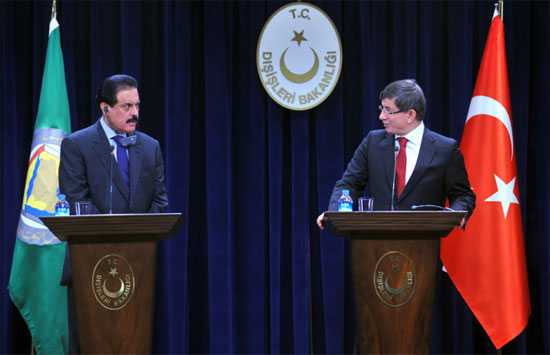By keeping anything and everything under wraps, the agency allows the rumor mill about its activities to grind on.
By Yossi Melman
Before it was permissible to say the words “Mossad” and “Shin Bet,” they would publish want-ads using euphemisms such as “a state institution …” Ostensibly, times have changed. Both the Mossad and the Shin Bet security service have websites; they can be called by name, and the names of the organizations’ heads are known. The Shin Bet even has a spokesperson, and she has a few assistants.
It can be assumed that the new Mossad chief, Tamir Pardo, who will officially take the reins next week, will consider appointing a spokesperson for his organization. (His predecessors Efraim Levy and Meir Degan thought about such an appointment, but both dropped the idea. )

But openness in these organizations is an illusion. In essence, the Mossad has remained the same “state institution” that takes pains to classify and guard every shred of information relating to it, even if it is not a matter of operational secrecy or particularly sensitive information. The protection of secret and sensitive information is essential and clearly understood, but what the Mossad seeks to censor is information that could harm its image.
Whatever it does, the Mossad generally enjoys the across-the-board support from nearly all of Israel’s government.
Utilizing the euphemism “jeopardizing state security” , the military censors almost always ban publication of reports to which the Mossad objects. The courts are generally happy to assent to any request delivered by the Mossad, including issuing gag orders in the presence of one party only; the Finance Ministry does not disclose the Mossad’s budget, and the National Insurance Institute and the Justice Ministry are prevented from disclosing information about labor-related issues concerning the organization’s employees.
The Prison Service also surrenders to Mossad whims. In the past, security prisoners were incarcerated in its jails in total isolation. There were years when such inmates were called “prisoner X,” and confined to “cell X” in the Ramle prison.”The Third Man,” as Avraham Seidenwerg / Avri Elad was known, and Mordecai Kedar in the 50s and 60s, are prime examples of those dark days in Israeli democracy, in which security prisoners were made to disappear.
Only a handful of wardens had access to such prisoners, and even they did not know the inmates’ identities. For instance, in the 80s Prof. Avraham Marcus Klingberg, imprisoned on charges of spying for the Soviet Union, was known to the small group of guards in charge of him as “Avraham Greenberg.”

The result of this unjustified and undemocratic policy of sealed lips is that rumors periodically circulate about the Mossad, most of them unfounded or inaccurate. The rumors make their way to internet sites overseas or to foreign journalists, quite a few of whom are completely clueless.
A good example of such rumor spreading is the veteran journalist Gordon Thomas, who wrote a bestseller about the Mossad. His book was classified as non-fiction but it should have been on the fiction shelf, since his stories and articles are full of fabrications, half-truths and baseless claims that even the most ardent conspiracy theorists would have trouble accepting.
For instance, he claimed that Monica Lewinsky was planted by the Mossad to entice U.S. President Bill Clinton, and stain his reputation. A few days ago, Gordon Thomas was sure that the new Mossad chief, Pardo, who has yet to take up his position officially, would soon apologize to the British for the Mossad’s alleged use of British passports.
In order to gauge Thomas’ reliability, suffice it to note that he stated in this report that Pardo served for the past three years as deputy Mossad chief. In fact, Pardo left the Mossad two years ago.
Claims have recently been made according to foreign reports that the Iranian general Ali-Reza Asgari, former head of the Al Quds division of the Revolutionary Guards and former Iranian deputy defense minister, is in Israel. Asgari disappeared in December 2006 under mysterious circumstances, during a trip to Turkey; since then, there have been a number of media reports suggesting that he sought asylum in a Western country, and relayed important intelligence information to it and to allied intelligence organizations.
Anyone who knows something about these subjects, and is familiar with relevant precedents, could conclude that the chances of Asgari finding asylum in Israel, or being forcibly brought here, are negligible. Defectors from Arab countries, such as the Iraqi MIG pilot Munir Redfa, or the Egyptian pilot Hilmi Abbas in the 60s, or the KGB station chief Yuri Lomov, who defected to Israel, chose, after being debriefed, to leave and remake their lives in a Western or South American country. The chances of a senior Iranian defector finding asylum here are close to nil.
The Mossad has neither the interest nor the ability to respond to such rumors. Sometimes it seems as though the organization enjoys rumors that bolster its image, depict it as an omnipotent entity, and thereby indirectly enhance its, and Israel’s, deterrent capability. The extent to which the Mossad’s reputation captivates imaginations globally is reflected by the fact that designers from a well-known international sports shoe company recently called a new brand “Mossad.”
However, the creation of a mythos and the ignoring of rumors has negative aspects. There are always credulous types who believe inaccurate reports and draw conclusions that could damage Israel in the future.
It would be better were Israel to realize that in some cases the release information, no matter how inconvenient and painful it might be, is preferable to concealing it and allowing an irresponsible, damaging rumor mill to grind on.
And now, the movie
It was only a matter of time. This week the family of Ashraf Marwan, who owns a television channel, announced it would be producing a film and a television series about his life, to be released in 2011. Marwan was a Mossad agent who warned Israel about the Yom Kippur War in 1973, but in recent years former Military intelligence chief Eli Zeira claimed that Marwan was a double agent. Thus, in 2007 he was murdered in London, likely by Egyptian security agents. The family’s aim is to clear Marwan’s name and present him as an Egyptian patriot who misled Israel and fed it false information.
Some two decades ago, Egyptian television did exactly the same and screened a documentary series about an Egyptian agent who penetrated Israel as a Jew named Jacque Biton. The series presented him as a hero, but in fact, he betrayed Egypt and became a valuable Israeli intelligence agent.
https://www.haaretz.com/2010-12-30/ty-article/the-mossad-myth/0000017f-e652-df5f-a17f-ffdebac50000, 30.12.10
[2]
Iranian ‘Mossad agent’: I was trained in Israel
Iranian state television shows interview with man who claims he was trained in espionage by Israel and participated in the assassination of a nuclear scientist in Tehran last year.
Iran claims to have smashed ‘Mossad spy ring’
Iran claims it has broken up a ‘Mossad ring’ allegedly behind the murder of an Iranian nuclear scientist in Tehran last year.
https://www.telegraph.co.uk/news/worldnews/middleeast/iran/8250787/Iran-claims-to-have-smashed-Mossad-spy-ring.html




